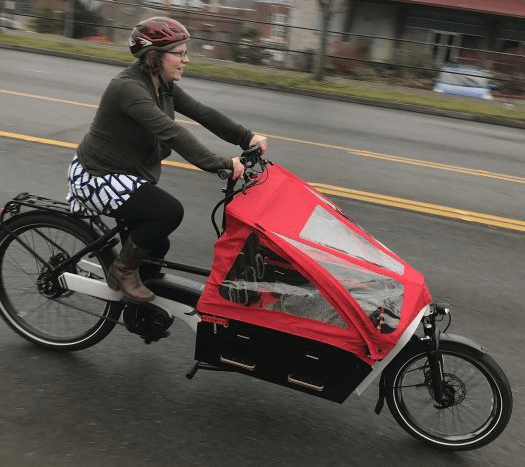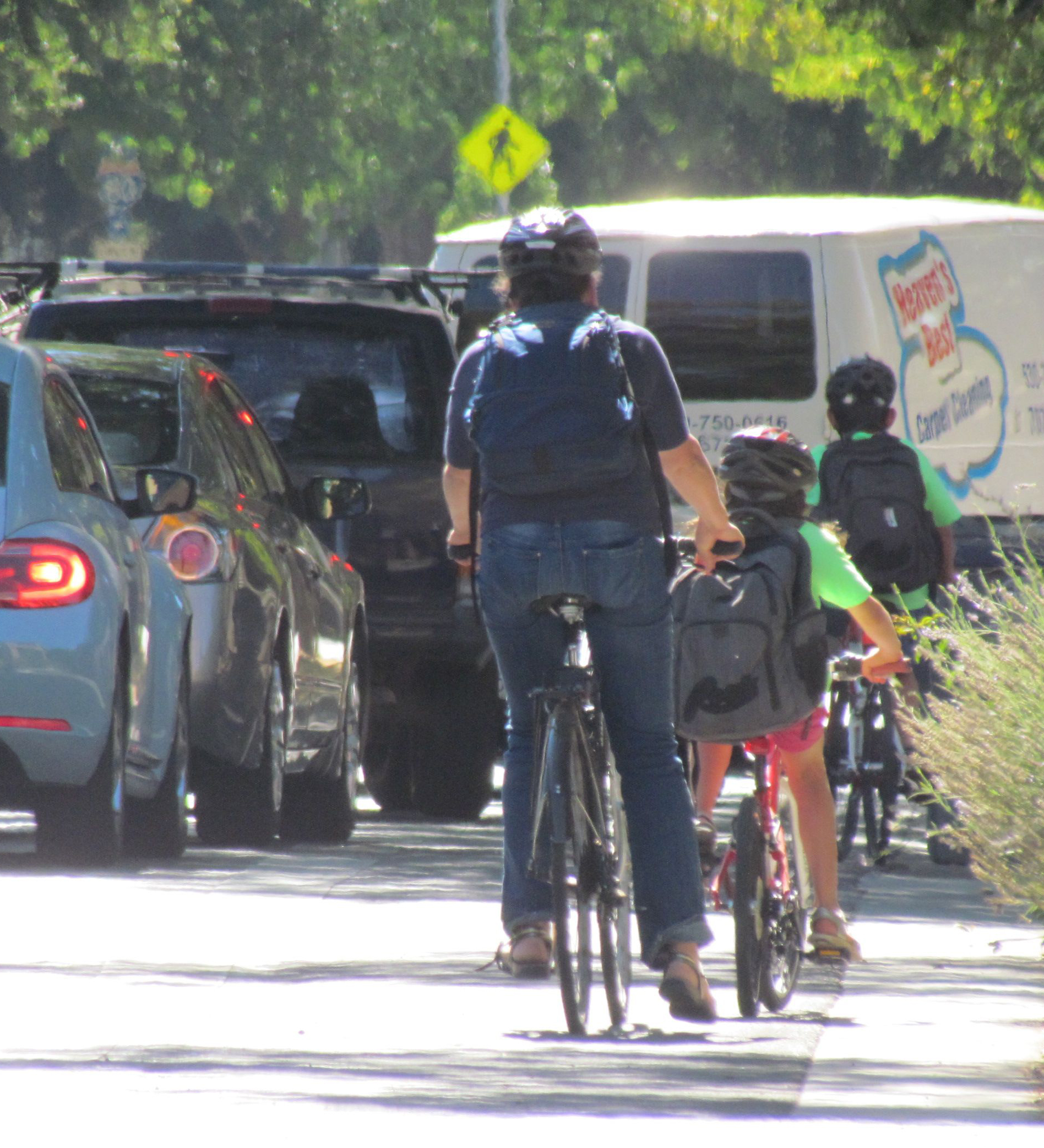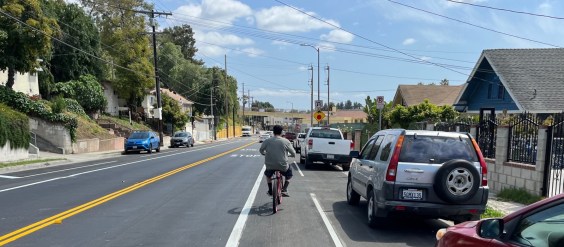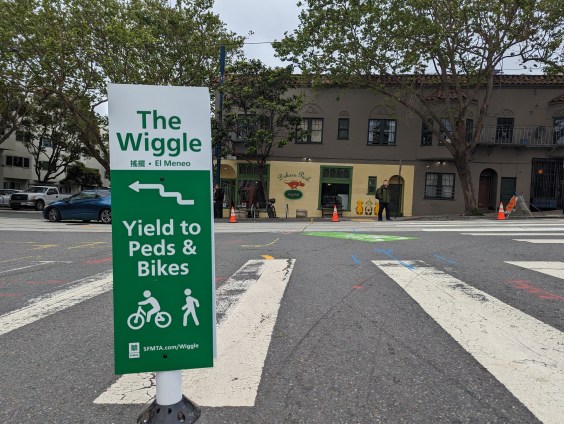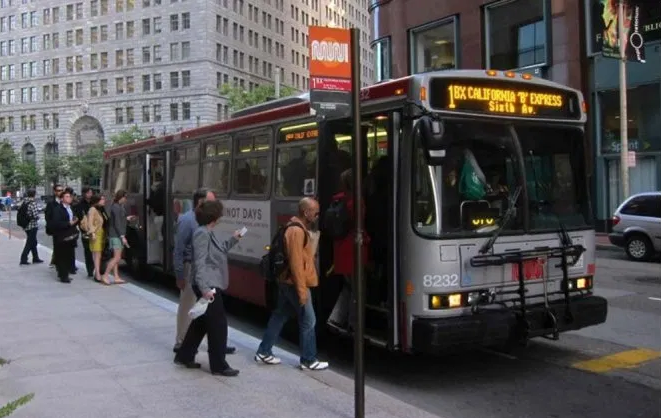GJEL Accident Attorneys regularly sponsors coverage on Streetsblog San Francisco and Streetsblog California. Unless noted in the story, GJEL Accident Attorneys is not consulted for the content or editorial direction of the sponsored content.
It's easy to be confused about this. Didn't a bill pass a few years ago to add ebikes to state EV incentive programs? Wasn't there money in last year's state budget for e-bike incentives?
Right now, there are few places you can apply for state assistance to buy an e-bike - one of the most climate friendly transportation options and a great car replacement. Getting help to purchase an electric vehicle, on the other hand, is easier and there is a lot more money going towards encouraging people to replace old cars with "cleaner cars" (including fossil-fuel powered "cleaner" cars).
Last year, Streetsblog tried to get a clear picture of where the state was on offering e-bike incentives, and the answer was: pretty much nowhere. At that time, none of the regional air districts had added e-bikes to their clean vehicle incentive programs, despite the passage of 2019's S.B. 400, which "allowed" them to do so.
Also, air district staff responses to questions were markedly unenthusiastic. They expressed doubt that there would be much interest for an e-bike, especially if it meant someone had to turn in an old gas powered car.
This year, the Bay Area Air Quality Management District has made some progress getting their voucher program going, and have shown that skepticism to be unfounded. So far this year, they have given out about forty e-bike vouchers to people who turned in old cars.
Meanwhile, the $10 million allocated last year for CARB to create a statewide e-bike incentive program has resulted so far in the creation of a task force, some meetings, and the search for an administrator to manage the as-yet-unformulated program. A.B. 117, a bill from Tasha Borner Horvath that aimed to define a statewide incentive program, was put on pause when the $10 million budget allocation went through last summer. That bill is still sitting in the legislature, with the potential to be revived.
The legislative analysis for A.B. 117 showed that skepticism about e-bikes as viable transportation options runs deep. In it, legislative staff worry that "the ongoing funding of a new e-bike voucher program could displace funding for rebates for light duty vehicle purchases under the existing CVRP." This is meant as a mark against the bill, but reveals more the belief that replacing cars with ebikes is not as important as replacing cars with other cars.
This despite CARB's own goals to reduce driving, the much lower price of e-bikes, the potentially huge cost savings to the state and to people who replace cars with e-bikes, the large potential for carbon reduction they offer, how well they can replace most car trips, their parking and traffic-solving abilities - and even how much fun they are.
The legislative analysis goes on to complain that the creation of an ebike incentive could force the different incentive programs to "compete for the same funding sources (the Air Quality Improvement Fund and the Greenhouse Gas Reduction Fund, from cap-and-trade), or create pressures to continue to fund the Electric Bicycle Incentive Program through the General Fund."
Imagine if whoever wrote that analysis phrased it the other way around. That is, that ongoing funding for new electric car subsidies could displace funding for more effective mode-shifting and VMT (vehicle miles traveled) reduction via e-bikes.
Note that California has allocated more than $1 billion just this year for incentives for electric cars and charging infrastructure. It's all-in on electrifying vehicles, but is reluctant to support a much cheaper, more efficient, better alternative.
One person who has been trying for several years - so far without success - to turn an old-car rebate into an e-bike voucher through the South Coast Air Quality Management District put it succinctly. "SCAQMD has been good at replacing cars with more cars," Misch Anderson recently told the regional air board. But her frustrating experience showed that SCAQMD hasn't been very good at replacing cars with more efficient, healthy travel options.
While it may not be CARB's mission to promote bicycles, reducing vehicle miles traveled is definitely within their area of concern. Taking e-bikes seriously would mean putting more thought and energy into how to get them to people - and in making sure the public knows that incentives exist.
And there's no need to reinvent the wheel, as others have been working on these issues. People for Bikes, for example, offers thoughtful guidance on what makes a good e-bike incentive program.
CARB and the regional agency's lack of interest is promoting them is disheartening because they know that research shows that electric bicycles are 25-700 times more carbon-efficient than electric vehicles, and that's a conservative estimate.
The agency also understands that unless people reduce the number of vehicle miles driven, California transportation will continue to contribute vast amounts of pollution and greenhouse gas emissions, even with huge investments in electric vehicles. They also know that switching most short trips to bicycles will achieve those VMT-reduction goals - and may the only way to do so.
But it's not just state agencies who are dragging their feet. According to Caron Whitaker, Deputy Executive Director of the League of American Bicyclists, environmental advocates are also skeptical. “The climate community doesn’t believe in e-bikes,” she told David Zipper, the author of a Bloomberg article about the lack of serious interest in e-bikes. “And if you’re a member of Congress and you’re thinking about the best ways to reduce emissions, you’re going to talk to the climate advocates.”
Meanwhile, others who do believe in the efficacy and transformative power of e-bikes are doing what they can. Counties, cities, utilities, and advocacy groups offer ways to help people buy e-bikes, although those programs tend to run out of funding quickly. Researchers at Portland State University are tracking e-bike incentive programs across the country. Many of the existing incentive programs are geographically focused, or income-focused, aimed at helping low-income people purchase an e-bike.
Groups are helping spread the good news about e-bikes in other ways too. Among the exciting ideas people are coming up with is an e-bike lending program run by the LA County Bicycle Coalition to help small businesses use e-bikes for deliveries, and a program in San Francisco to give e-bikes to delivery workers. These are all a big win/win/win/win/win for climate, efficiency, traffic, parking, and fun.
Of course, people are not waiting for these incentives. The market for e-bikes is booming, even with the slow pace with which safe biking infrastructure is being rolled out. Some might argue this as a point against state investments in e-bike incentives, but imagine the difference if decision makers enthusiastically embraced the promotion and encouragement of e-bikes with the same vigor with which they are embracing electric cars.
Note also that most of the incentive programs are aimed at low-income people. Equitable access to e-bikes, as well as to quality bike infrastructure, will be key to meeting state clean air goals, and it will require focused attention and investment.
